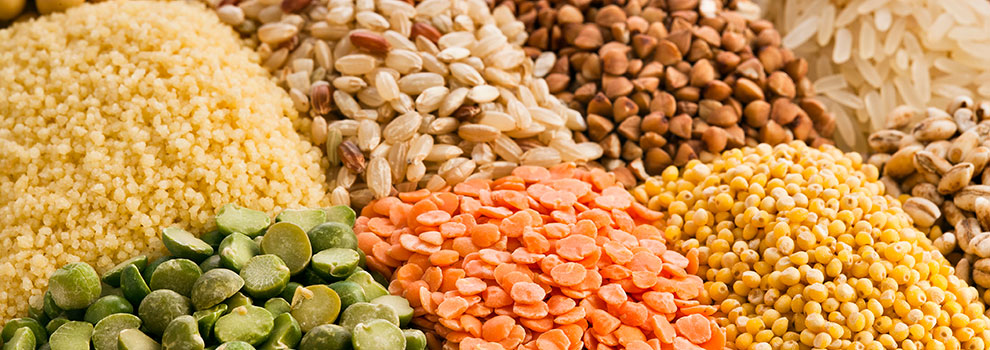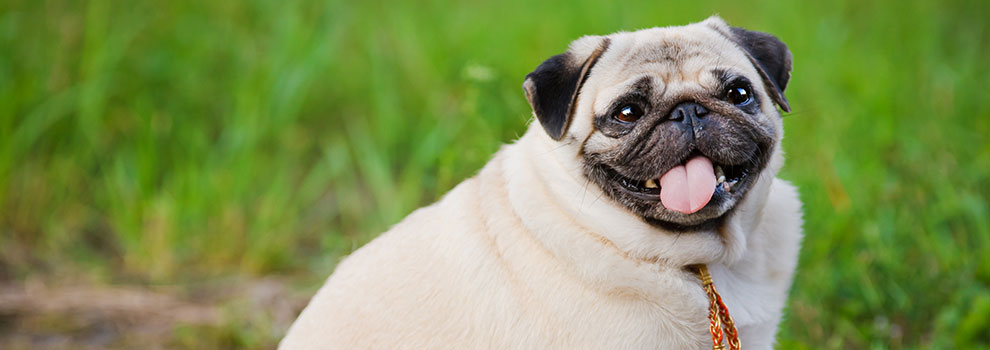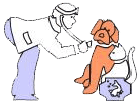Recently, one of the most common questions I have been receiving from my clients, is if they should feed their dogs grain free foods. Many clients are switching to these products on their own, frequently assuming that they will fix certain problems or that they will be inherently better based on advertisements published in the popular media.
Many such ads seem to vilify grain in dog food fairly dramatically. So, are grain free foods right for your dog? Could they be detrimental? The short answer is that it depends. Let’s look at the details of some of the claims.
Grain In Dog Food Causes Allergies

It is true that food allergies are a somewhat common diagnosis in dogs. There is also absolutely no question that some dogs DO have food allergies to grains. Our dermatologists that study allergies in dogs have shown that MOST food allergies are caused by the most common meat components in food. That would be beef or chicken.
Almost all “grain free” foods feature a meat protein source that will still trigger an allergic response. When a veterinarian wants to prove that a food allergy exists, they will put the pet on food that either is a totally novel protein source, like duck, rabbit, venison, or food where the protein molecules are broken down, called hydrolyzed diets. These effectively test for and treat a true food allergy.
It is also important to remember that an overwhelming majority of allergies in dogs are not caused by food, but are caused by environmental allergies or atopy. This type of allergy is equivalent to human “hay fever”.
These dogs will be afflicted regardless of what type of food they eat and grain free dog food will not help them at all. If you have questions about your pet and allergies, it is best to ask your veterinarian for recommendations before buying a bunch of new food and other products.
Grain Represent “Fillers”

Many dog food commercials talk about fillers as a great negative. So are they? Yes, so called fillers are of grain origin. What the food companies call fillers, human doctors, nutritionists, and cereal makers call fiber.
In the human realm, fiber is good. So what about our dogs? Are “fillers/fiber” good or bad? Once again, the answer is, “it depends”. Grain free dog foods have less fiber and tend to be a bit higher in protein. This will have two possible “good” effects. One is there is less stool produced, and pooper scooping is easier. For some folks, this is a big deal.
The other is the higher protein will sometimes result in a shinier coat. (Everybody likes that one, although it doesn’t always occur.)
What is the downside?

The biggest I see is that these foods tend to be fattening. Because there is so little fiber, the dogs tend not to feel full and will sometimes overeat. They also tend to be more calorie rich without the fiber aspect, thus obesity becomes a real risk. Carefully watch portion control if you feed these foods.
A large percentage of dogs in the US are overweight to start out with. Especially if improperly fed, these foods can make many of these dogs go into the obese range. Obesity causes a variety of serious health problems in dogs over time. For these dogs, I would recommend a light or diet food that is likely to have a fair amount of fiber in it.
The weight loss and improved health and energy will be worth it. No matter what the “grain free” commercials say. Medical conditions, such as early kidney failure or disease can be worsened by eating high protein diets. Foods for these patients should be lower in protein. Medical conditions are treated by feeding fiber rich foods.
Grain free dog foods could be a suitable option or a potential liability, depending on the specific health of your pet. As with so many things, it is ideal to consult with your veterinarian before making any dramatic changes.
 All About Pets
All About Pets 

